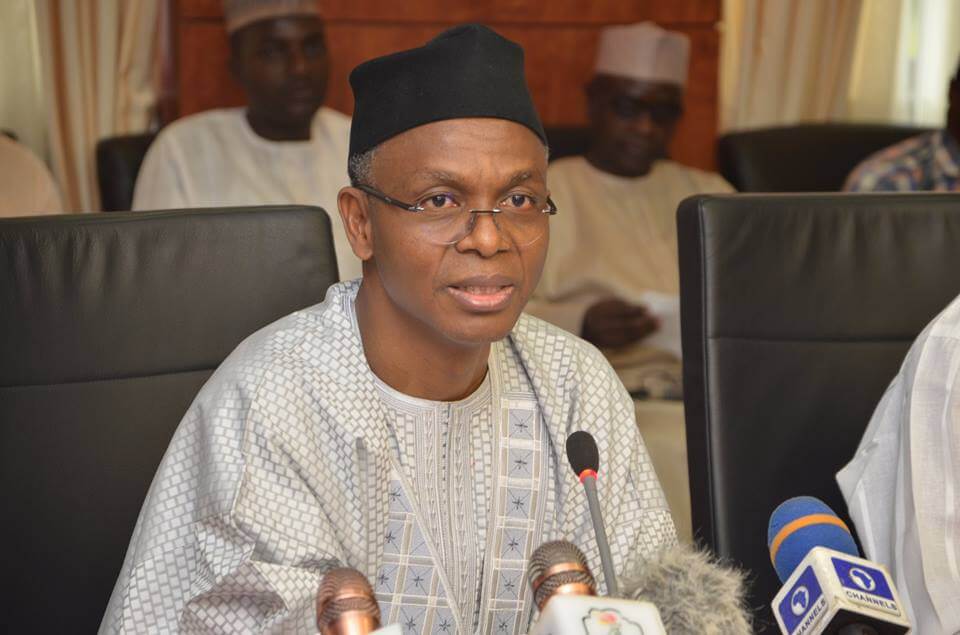The move by the Kaduna State Governor, Mallam Nasir El-Rufai to regulate religious activities in the state has met brick walls after a High Court in the state ruled that the state had no right to screen and licences to preach in the state.
Recall that the Kaduna State House of Assembly on Friday, June 7 passed the Religious Preaching Regulation bill into law.
Advertisement
The Court noted that the plan by the state government to issue licences to religious leaders using the Religious Regulatory Bill is a gross violation of their fundamental human rights, which guarantees freedom of association and freedom of religion.
The Court added that the passage of the religious bill is inconsistent with the Constitution of the Federal Republic of Nigeria 1999 (as amended).
Justice Gwadah said Sections 6 and 9 of the bill which seeks to screen and licence preachers “violates the constitutional rights of the applicant”.
Recall that the Pentecostal Fellowship of Nigeria, PFN in 2016 challenged the constitutionality of the bill.
Advertisement
The bill had been with the assembly for three years and had been opposed by Muslim and Christian bodies as well as individuals across the state.
The opposition of both the Muslim and Christian bodies in the state to the bill may be a result of the provisions of the bill.
1. The state government had in 2016 argued that the bill was meant to regulate religious preaching in order to promote religious harmony and peaceful coexistence not to stifle religious freedom.
2. The law provides for the establishment of an Interfaith Regulatory Council at the state level and committees at local government levels responsible for screening and issuing licence to preachers. The councils will have two representatives each of Christian and Islamic bodies among other members. According to the speaker, the new law mandates the council to hear and determine appeals to be brought before it arising from the decision of the local government interfaith committees. The Council also has the power to issue regulations considered necessary to guide the local government interfaith committees in the performance of their functions as provided under the bill, if signed into law.
3. The law stipulates that in each of the 23 local government areas of the state, a committee to be known as the Local Government Interfaith Committee has to be established. The Local Government Interfaith committee shall consider and recommend to state Interfaith Regulation Council all applications for the grant of licence to religious preachers as well as screen and recommend preachers for the grant of license among other functions. The supplementary provision provides that all cassettes, CDs, flash drives or any other communication gadgets containing religious recordings from accredited preachers may be played inside a private dwelling unit or vehicle, entrance porch (zaure), Church, Mosque and any other designated place of worship.
Advertisement
4. The law further stated that any person who plays religious cassette or uses a loudspeaker for religious purposes between the hours of 11pm to 4am in a public place, and uses a loudspeaker for religious purposes other than inside Church or Mosque commits an offence and shall on conviction be liable to imprisonment for a term of not less than two years or pay a fine of not less than N200,000 or both.
5. The law also states that any person who publicly insults or seeks to incite contempt against any religion, by making false statements in such a manner that can likely lead to breach of peace, shall be punished with imprisonment for a term of not less than five years or a fine of not less than N100,000 or both.



